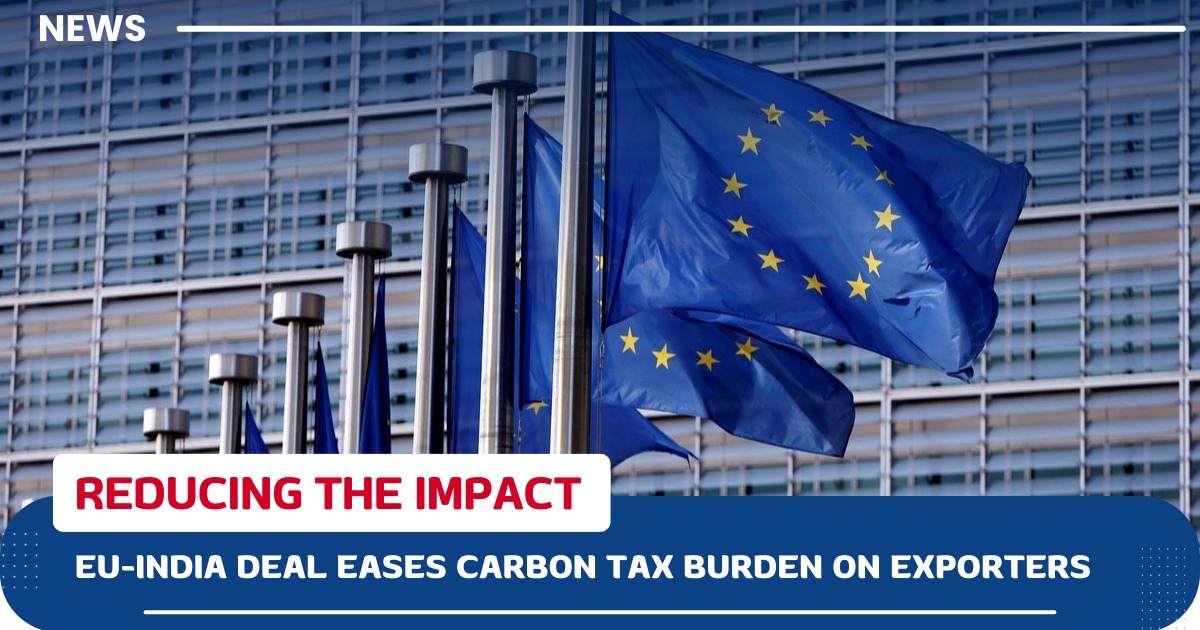India–US Trade Tensions Rise Over Steel and Auto Tariffs NMDC Limited reports a 38% drop in Q4 FY24 consolidated net profit RINL to Raise $23 Million Through Land Sales Amid Crisis

India and the European Union have reached an agreement to reduce the impact of the EU’s upcoming Carbon Border Adjustment Mechanism (CBAM) on Indian exporters.
Under the deal, any carbon price already paid in India will be deducted from CBAM charges in Europe. This move will lower compliance costs for exporters. The revised CBAM will be fully implemented from January 2026.
India is also expanding its carbon credit trading system and improving emissions reporting, which will align better with EU rules.
Sectors Affected:
CBAM will apply to iron and steel, aluminium, cement, electricity, hydrogen, and fertilizers. Indian companies, especially steelmakers using high-emission processes like blast furnaces, could face higher costs. However, the EU’s concession to recognize India’s carbon pricing will give exporters partial relief.
Concerns:
Industry officials warn that stricter EU emission norms may still hurt India’s steel exports, which make up nearly two-thirds of exports to Europe.
Positive Outlook:
Beyond CBAM, the agreement also strengthens EU-India cooperation in clean technologies, renewable energy, green finance, and resilient supply chains, boosting long-term trade ties.
Also Read : Salzgitter AG partners with Octopus Energy for green steel production Ukraine’s Steel Industry Embraces European Path to Decarbonisation